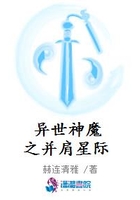They were served by a little hunch-back maid; and she told them who lived in the chief house of the village. It was uncommonly pretty; where all the houses were picturesque, and she spoke of it with respect as the dwelling of a rich magistrate who was clearly the great man of the place.
March admired the cat which rubbed against her skirt while she stood and talked, and she took his praises modestly for the cat; but they wrought upon the envy, of her brother so that he ran off to the garden, and came back with two fat, sleepy-eyed puppies which he held up, with an arm across each of their stomachs, for the acclaim of the spectators.
"Oh, give him something! "Mrs. March entreated. "He's such a dear."
"No, no! I am not going to have my little hunchback and her cat outdone," he refused; and then he was about to yield.
"Hold on!" said Stoller, assuming the host. "I got the change."
He gave the boy a few kreutzers, when Mrs. March had meant her husband to reward his *****te with half a florin at least; but he seemed to feel that he had now ingratiated himself with the ladies, and he put himself in charge of them for the walk to the cemetery chapel; he made Miss Triscoe let him carry her jacket when she found it warm.
The chapel is dedicated to the Holy Trinity, and the Jesuit brother who designed it, two or three centuries ago, indulged a devotional fancy in the triangular form of the structure and the decorative details.
Everything is three-cornered; the whole chapel, to begin with, and then the ark of the high altar in the middle of it, and each of the three side-altars. The clumsy baroque taste of the architecture is a German version of the impulse that was ****** Italy fantastic at the time; the carving is coarse, and the color harsh and unsoftened by years, though it is broken and obliterated in places.
The sacristan said that the chapel was never used for anything but funeral services, and he led the way out into the cemetery, where he wished to display the sepultural devices. The graves here were planted with flowers, and some were in a mourning of black pansies; but a space fenced apart from the rest held a few neglected mounds, overgrown with weeds and brambles: This space, he said, was for suicides; but to March it was not so ghastly as the dapper grief of certain tombs in consecrated ground where the stones had photographs of the dead on porcelain let into them. One was the picture of a beautiful young woman, who had been the wife of the local magnate; an eternal love was vowed to her in the inscription, but now, the sacristan said, with nothing of irony, the magnate was married again, and lived in that prettiest house of the village. He seemed proud of the monument, as the thing worthiest the attention of the strangers, and be led them with less apparent hopefulness to the unfinished chapel representing a Gethsemane, with the figure of Christ praying and his apostles sleeping. It is a subject much celebrated in terra-cotta about Carlsbad, and it was not a novelty to his party; still, from its surroundings, it had a fresh pathos, and March tried to make him understand that they appreciated it. He knew that his wife wished the poor man to think he had done them a great favor in showing it; he had been touched with all the vain shows of grief in the poor, ugly little place; most of all he had felt the exile of those who had taken their own lives and were parted in death from the more patient sufferers who had waited for God to take them. With a curious, unpainful self-analysis he noted that the older members of the party, who in the course of nature were so much nearer death, did not shrink from its shows; but the young girl and the young man had not borne to look on them, and had quickly escaped from the place, somewhere outside the gate.
Was it the beginning, the promise of that reconciliation with death which nature brings to life at last, or was it merely the effect, or defect, of ossified sensibilities, of toughened nerves?
"That is all?" he asked of the spectral sacristan.
"That is all," the man said, and March felt in his pocket for a coin commensurate to the service he had done them; it ought to be something handsome.
"No, no," said Stoller, detecting his gesture. "Your money a'n't good."
He put twenty or thirty kreutzers into the hand of the man, who regarded them with a disappointment none the less cruel because it was so patient.
In France, he would have been insolent; in Italy, he would have frankly said it was too little; here, he merely looked at the money and whispered a sad "Danke."
Burnamy and Miss Triscoe rose from the grassy bank outside where they were sitting, and waited for the elders to get into their two-spanner.
"Oh, have I lost my glove in there?" said Mrs. March, looking at her hands and such parts of her dress as a glove might cling to.
"Let me go and find it for you," Burnamy entreated.
"Well," she consented, and she added, "If the sacristan has found it, give him something for me something really handsome, poor fellow."
As Burnamy passed her, she let him see that she had both her gloves, and her heart yearned upon him for his instant smile of intelligence: some men would have blundered out that she had the lost glove in her hand. He came back directly, saying, "No, he didn't find it."
She laughed, and held both gloves up. "No wonder! I had it all the time. Thank you ever so much."
"How are we going to ride back?" asked Stoller.
Burnamy almost turned pale; Miss Triscoe smiled impenetrably. No one else spoke, and Mrs. March said, with placid authority, "Oh, I think the way we came, is best."
"Did that absurd creature," she apostrophized her husband as soon as she got him alone after their arrival at Pupp's, "think I was going to let him drive back with Agatha?"
"I wonder," said March, "if that's what Burnamy calls her now?"
"I shall despise him if it isn't."














